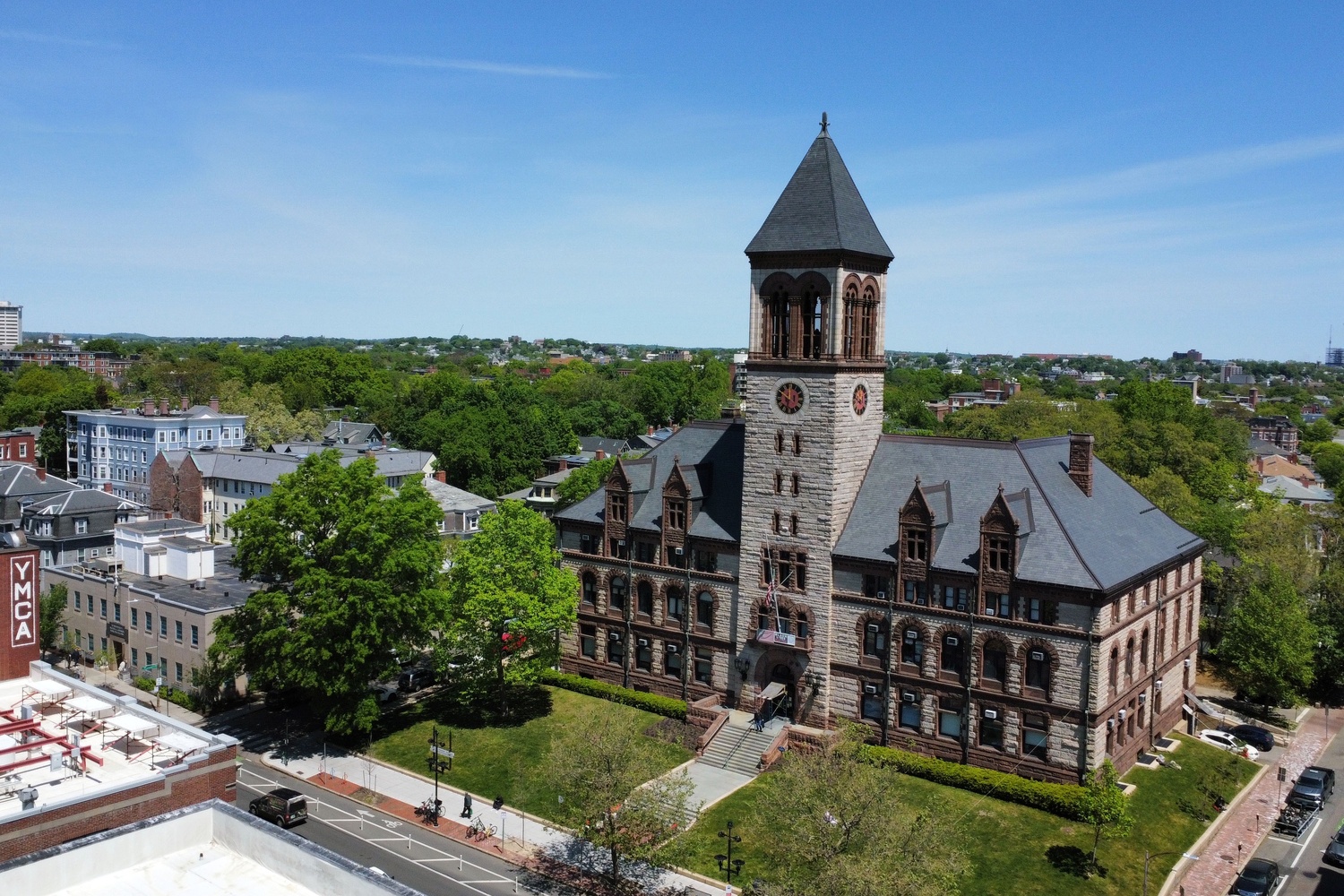
News
Summers Will Not Finish Semester of Teaching as Harvard Investigates Epstein Ties

News
Harvard College Students Report Favoring Divestment from Israel in HUA Survey

News
‘He Should Resign’: Harvard Undergrads Take Hard Line Against Summers Over Epstein Scandal

News
Harvard To Launch New Investigation Into Epstein’s Ties to Summers, Other University Affiliates

News
Harvard Students To Vote on Divestment From Israel in Inaugural HUA Election Survey
Cambridge Plans To File Amicus Brief Supporting Harvard in Lawsuit Over International Students

The City of Cambridge plans to file an amicus brief supporting Harvard’s lawsuit against attempts by President Donald Trump and the Department of Homeland Security to revoke its ability to enroll international students.
The plan is described in a document compiled by the Office of the City Solicitor for the City Council’s meeting next Monday that details a list of lawsuits concerning federal actions that would affect Cambridge, including the DHS lawsuit. A note states that the city “intends to file an amicus brief in this case.”
City spokesperson Lee Gianetti declined to say when the city plans to file the amicus brief but noted that briefs in the DHS lawsuit are due in early October.
The Trump administration first attempted to revoke Harvard’s certification under the Student and Exchange Visitor Program, which allows the University to host international students and researchers on F-1 and J-1 visas, in late May. The University filed a lawsuit just one day later and the revocation was blocked.
Trump then issued a proclamation barring foreign students from entering the U.S. to attend Harvard by suspending entry under Harvard-sponsored student and exchange visitor visas — another move that was blocked in late June with a preliminary injunction issued by a federal judge.
Harvard currently hosts more than 10,000 people on F, J, and H visas, including more than 5,000 international students.
Cambridge has been vocal in its support of Harvard’s fight against the White House. When the Trump administration first put the University’s funding in limbo, the City Council passed a resolution and organized a protest to urge Harvard to resist federal demands. Councilors also circulated a petition against the demands, which garnered 1,300 signatures.
When Harvard made its first fiery rejection of the demands, the City Council unanimously passed a second resolution praising “its resolve, courage, and dedication to safeguarding American democracy” and committed Cambridge to “offer its full support to Harvard as it navigates this challenging moment.”
The Trump administration announced its $2.2 billion funding freeze during the meeting, as councilors were gathered in City Hall.
At this time, the city does not plan on filing an amicus brief in the funding lawsuit, according to Gianetti. An earlier deadline for amicus briefs passed without input from Cambridge, and because both parties requested summary judgment, the judge in the case is likely to issue a decision within the next month.
City councilor Patricia “Patty” M. Nolan ’80 has been a vocal supporter of Harvard — and Trump opponent — as a co-founder of the alumni group Crimson Courage. The group has been active for several months, organizing its own amicus brief in the funding lawsuit and pressuring the University not to concede to the Trump administration’s demands.
The alumni also led a rally and press conference outside Boston’s federal courthouse during oral arguments for the funding lawsuit. Nolan was featured as a speaker.
Harvard’s funding fight has been greeted with a flood of support from state and federal Democrats — including Massachusetts Attorney General Andrea J. Campbell, who submitted an amicus brief labeling the Trump administration’s attempt to revoke Harvard’s SEVP status “political retribution.”
But with whispers that Harvard may be nearing a deal with the Trump administration, a group of Democrats in Congress are now seeking to apply pressure. Fourteen lawmakers, all Harvard alumni, sent University President Alan M. Garber ’76 a letter on Thursday warning that they may pursue a congressional investigation if Harvard reaches a settlement with the White House.
Other universities — including Columbia University, Brown University, and the University of Pennsylvania — have agreed to their own deals with the Trump administration, conceding to major changes in the process.
Even as Harvard secures interim victories in court for its international students, the Trump administration has continued to target them.
The status of a second attempt to revoke Harvard’s SEVP certification remains unclear. But the State Department launched a new investigation last week into the Exchange Visitor Program, which lets universities host exchange scholars and students on J-1 visas.
Harvard also announced on Tuesday that it would turn over I-9 forms for nearly all University employees following subpoenas and a notice of inspection from the DHS. I-9 forms, which employers must complete and retain for every employee, document employees’ authorization to work in the U.S.
—Staff writer Megan L. Blonigen can be reached at megan.blonigen@thecrimson.com. Follow her on X at @MeganBlonigen.
Want to keep up with breaking news? Subscribe to our email newsletter.
